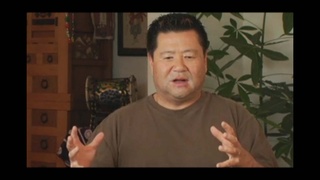Interviews
Importance of self-representation in legislation
Well, one of the fundamental things was to take ownership, that people would feel it was their lawsuit, not somebody else’s. That’s also been one of the problems in the past with legislation. Most of the legislation that was passed on behalf of Japanese Americans was done by others on behalf of Japanese Americans, not by Japanese Americans. There’s some problems with that, maybe it was necessary early on. I’m not sure. But there’s some problems with that because you don’t necessarily get what you want. It was important for people to sort of step in and represent themselves—speak for themselves.
Date: June 12, 1998
Location: California, US
Interviewer: Darcie Iki, Mitchell Maki
Contributed by: Watase Media Arts Center, Japanese American National Museum
Explore More Videos


Support from the Japanese American community
(b.1971) Professional figure skater and Olympic gold medalist.

Heightened awareness of identity as a Japanese American
(b. 1955) Lawyer

Reasons for conformity and competitiveness in Gardena, California
(b. 1946) Lawyer







Advantages of being Nikkei (Spanish)
(b. 1950) Nisei Chilean, Businessman


Childhood shame for being Nikkei in Enumclaw, Washington
Judge, only Japanese American to serve on CWRIC.

On the Impact of the Camp Experience
(b. 1942) The first Asian American woman judge

Thoughts on the term, "Nikkei"
(b. 1949) Musician and arts educator and adminstrator.
